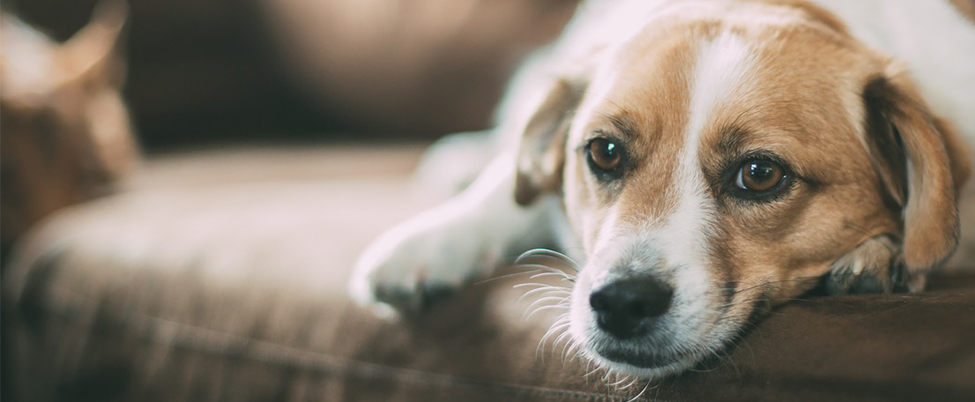
Changes in behaviour could be a sign
Although it can’t tell you when it feels unwell or is in pain, any changes in your dog’s normal pattern of behaviour may indicate underlying dog health problems, which should be reported to your vet, can dogs get lice?
There are many dog health problems that will need to be attended to by a vet. However, by learning how to provide a good level of dog care, you can help prevent many illnesses and health issues, ensuring you have a happy and healthy dog.
The list below highlights signs of poor dog health to keep an eye out for, and gives guidance on how to provide the finest level of dog care.
Signs of ill health
- Is your dog refusing to eat or generally eating less than normal?
- Is your dog lethargic and unwilling to play or go for a walk?
- Does your dog appear to be depressed or in pain?
- Does your dog have any physical symptoms such as diarrhoea or vomiting?
- Is your dog’s behaviour abnormal in any way?
If you have answered yes to any of the above, you should contact your veterinary practice for advice.
Top to tail health care: eyes
- Wipe around the eye area every day using a separate piece of damp cotton wool for each eye.
- Check the eyes every week to ensure they are clean, clear, healthy and free from discharge.
- Any inflammation, discharge, cloudiness, or other abnormalities should be reported to your vet.
- If your dog’s eye is sore or infected, try to prevent it scratching it with its paw, or rubbing it against a piece of furniture, as this could cause further damage.
- If your dog’s eye has been seriously injured, cover it with a damp piece of gauze or a bandage and seek veterinary assistance immediately.
Ears
- Gently wipe the inside of the ear once a week, using a separate piece of damp cotton wool for each ear.
- Do not insert cotton buds into your dog’s ear – the ear is easily damaged and a cotton bud could also push wax further inside the ear.
- Take extra care if your dog has long ears, as a build-up of oil, dirt and bacteria can easily cause problems.
- Any excess earwax, discharge, head shaking, ear scratching or other abnormalities should be reported to your vet.
Mouth, teeth & gums
- Brush your dog’s teeth at least twice a week with a soft toothbrush or finger brush – your vet will be able to recommend special canine toothpaste.
- Do not use human toothpaste for your dog.
- If your dog will not accept a toothbrush, try wrapping a piece of old towel or cloth around your finger instead and use this to clean its teeth.
- Inspect your dog’s mouth on a regular basis and make sure its teeth and gums are examined by your vet on an annual basis.
- Excessive drooling, bad breath, bleeding gums and problems eating should all be reported to your vet.
- Tooth decay and gum disease in dogs can lead to other health problems; including heart, liver and kidney disease.
Grooming
- Regular grooming will help to strengthen the relationship between you and your dog and will also enable you to check for any abnormalities of your dog’s coat or skin.
- Long-haired dogs should be groomed every day to prevent painful mattes and knots from forming.
- Dogs with smooth or short coats should be groomed at least once a week to improve circulation and remove dirt and dandruff.
- Any hair loss, skin rashes, lumps or other abnormalities should be reported to your vet.
Uninvited guests
- Fleas, ticks, worms and other parasites can cause health problems for dogs and humans alike, so it is important to control them effectively.
- Puppies should be wormed regularly from about two weeks of age.
- Adult dogs should be wormed every three to six months – your vet will advise you of the most effective preparation to use.
- Many puppies are born with roundworms, so do not let them lick children or adults, as roundworm eggs are carried in the mouth and can be passed on to human beings.
- Keep worming tablets and medicine out of the reach of children.
- Fleas cause intense irritation and tapeworm infestation in dogs – contact your vet for a suitable flea control preparation.
- Vacuum carpets on a regular basis and keep your dog’s bedding clean – you can also use special flea control powders and sprays within the house.
- Ticks can usually be removed by daubing the area with surgical spirit and using tweezers to twist the tick from the skin – if the head remains embedded your vet may need to remove it to prevent infection.
perhaps Lord Coe has spent quite enough of other peoples money À la recherche du temps perdu ? the Olympics were fine – well done Seb and Boris, but the party is over and now we should be paying more than the minimum off the credit card bill! More public sector debt is the last thing our children need. that should not be the Olympic legacy.
Yay, Boris! Your humor has already endeared you to the world. Well-done, sir. Well-done.